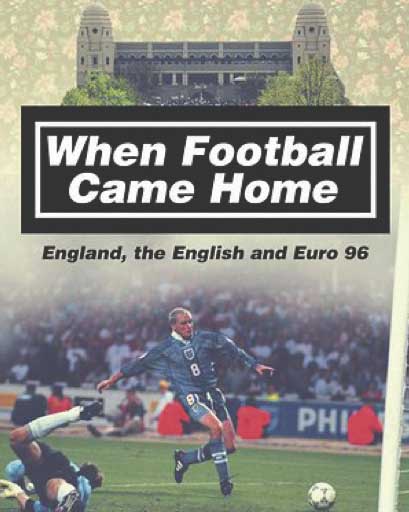 England, the English and Euro 96
England, the English and Euro 96
by Michael Gibbons
Pitch Publishing, £12.99
Reviewed by Jonathan O’Brien
From WSC 352 June 2016
It‚Äôs now 20 years since Euro 96, a relentlessly mediocre, often sparsely attended tournament won by an unexceptional Germany team that stumbled over the line carrying a busload of walking wounded. Realistically, it should be best forgotten. Yet, oddly, it continues to exert a strong hold over English football‚Äôs folk memory. Not because of the standard of play, or because England achieved anything beyond a restoration of respectability, but… just because. For better or worse, its name has come to evoke an unrepeatable moment in time.
When Football Came Home, Michael Gibbons’s anniversary look back at that boiling summer, might be a nostalgia trip but it’s rarely rose-tinted. Comprehensively researched and honest to a fault, it refuses to buy into the enduring myth that England were brilliant in the tournament and should have won. It also doesn’t flinch from chronicling the xenophobic excesses and under-reported hooliganism that marred the competition.
England’s two-year preparation was a slow, seemingly endless grind that descended into farcical debauchery just before the competition began, with a sozzled and irascible Paul Gascoigne doing his best to dismantle a Cathay Pacific aircraft while it was still in the air coming back from Hong Kong. The early chapters manage to capture the dreariness of that long slog without being boring themselves: it’s easy to forget how many journeymen Terry Venables tried and discarded along the way (Jason Wilcox, Kevin Richardson, Warren Barton, Colin Cooper and David Unsworth, to name but five) and how many of those interminable friendlies ended in stultifying draws.
It’s similarly easy to forget how unimpressive England were for most of the tournament itself. Gazza, their talisman, saw his legs embarrassingly give out after an hour of the opening game against Switzerland, allowing Johann Vogel to run away from him “like a Ferrari in a drag race with a milk float”. He then buried Scotland with the most memorable goal of his life, having played like an amateur for almost the entire match. This was the story of England’s tournament – a series of sublime moments masking broader weaknesses. As Gibbons notes, the 4-1 win over Holland was hailed as a triumphant thrashing, but was actually an exercise in economical counter-attacking. “England didn’t outplay the Dutch, but they did outscore them.”
A wholly England-centric book wouldn’t have been massively interesting and Gibbons, who on this evidence is a good writer, fleshes out the tale with plenty of entertaining vignettes about the travails and foibles of the other teams: the sadistic Javier Clemente made Spain’s players go straight from baking saunas to ice baths; one Romanian fan walked all the way to England from Brasov; Bulgaria’s Yordan Letchkov was accompanied by two heavies when he went clubbing in Newcastle; and so on.
However, with a certain inevitability – and as the title warned us – the author attempts to make Euro 96 more than it was, weaving the rictus jollity of Britpop and the rise of New Labour into his narrative. He doesn’t make a hames of it, but it reaches its apogee when, at one point, he appears to come close to suggesting that Sleeper were a great band. This otherwise admirable book would have been no poorer without the extraneous cultural material, which shows how spot-on Gibbons was with the meat of his subject. Recommended.